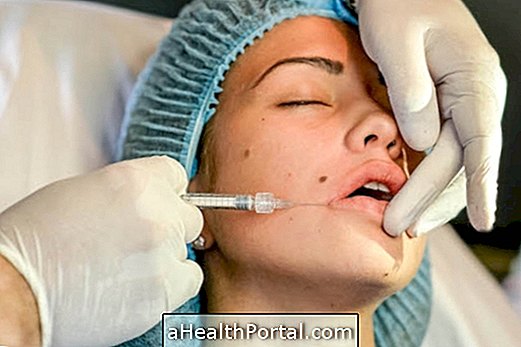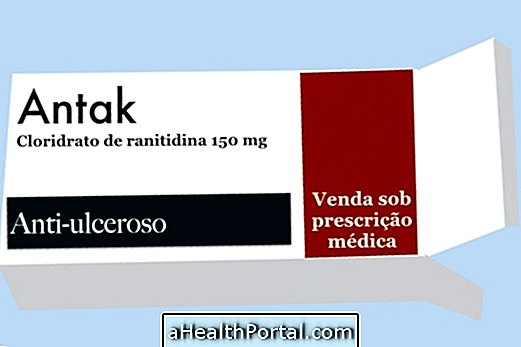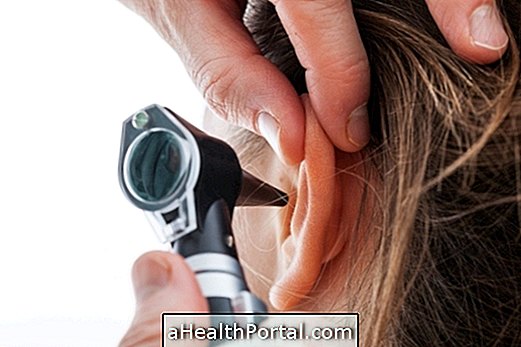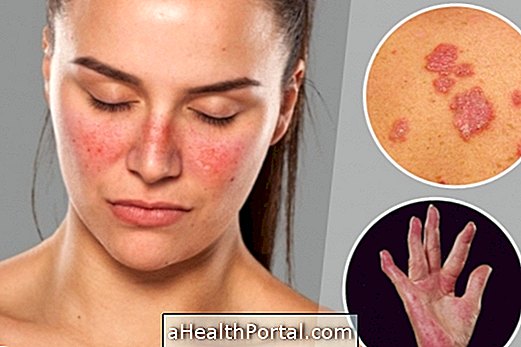In the summer, skin care should be redoubled, because sun and dehydration can bring many problems like burns, premature aging, even increasing the risk of cancer.
So to avoid common skin diseases in the summer such as ringworm, burns and skin cancer, one should adopt simple measures, such as keeping the skin dry, free of sweat, but properly hydrated. So, to protect yourself, here are 10 essential skin care tips on the hottest days of the year.
1. Keep skin clean and moisturized
Taking at least 2 baths daily per day should be enough to keep the skin properly clean, free of sweat. If it is very hot, you can take more baths, but it is recommended to use only water, avoiding the soap so as not to leave the skin more dry. Antiseptic soap can be useful for eliminating bacteria and other microorganisms from the armpits, intimate region and feet that can cause chill, for example.
After bathing it is important to pass a moisturizing cream fluid, at least in regions where the skin tends to get drier like feet, knees, hands and elbows. Understand why taking more than 2 baths per day is harmful to your health.

2. Wear sunscreen daily
Applying sunscreen about 20 to 30 minutes before sun exposure and renovating every 3 hours is important for anyone on the beach or in the pool. But anyone who is exposed to the sun during work should also take this care every day to avoid skin cancer.
The protector should be passed throughout the area of the skin is exposed to the sun. So, those who work on buses and trucks can, for example, apply enough sunscreen to the arm and left hand because they tend to be more exposed to the sun.
Post-sun lotions are great for refreshing your skin after a day at the beach, pool or waterfall. Good examples are Avène Sun After Lotion, Mustela Post-sun Spray and Bioderma Photoderm, as these products moisturize, repair and soothe sun-damaged skin, avoiding flaking, prolonging the tan.
3. Do not shave on the sun-catching day
Another important summer care is not to do the face and body waxing on the day and also on the eve of sun exposure because this can cause dark patches on the skin. Thus, hair removal should be done at least 48 hours in advance. A good strategy is to do waxing because it removes the hairs at the root, taking longer effect, but if this is not possible, see how to make the hair removal perfect.

4. Take a fresh shower when you leave the beach
After a day at the beach, you should take a freshwater bath, preferably cold, to remove the salt and sand that tend to dry the skin, facilitating cracks that may allow the entry of microorganisms. If the beach has a freshwater shower, try passing it before leaving the beach, and if you do not have a light bottle of fresh water to throw on your body when you leave the sand. If possible, try moisturizing the skin by applying sunscreen or post-sun lotion again.
5. Do not do skin treatments in the summer
Avoiding laser treatments and chemicals during the summer is important because these treatments can damage tanned skin and cause stains that are difficult to remove. The best time to do these treatments is during the fall and winter, when the temperature is cooler and the sun less strong, but it is always important to use sunscreen when doing these treatments.
Another important care is to exfoliate the skin, especially on the face and feet, once a week to eliminate dead skin cells and renew the skin. See a great home-made recipe for exfoliating your feet and leaving your heels trimmed.
6. Keep skin always dry
Keeping the skin always dry is important to prevent the appearance of fungi that lead to ringworm. So you should wear sandals or slippers so that your feet do not get wet from sweat inside the shoe. Also, to prevent ringworm, also known as white cloth, one should avoid sharing towels at clubs, beaches and swimming pools. See more care.
7. Sunbathing with protector

Those who want to get tanned without damaging their skin may choose to use a weaker sunscreen with SPF 4 or 8, for example, because it filters the sun's harmful rays and makes the skin look more beautiful, with a golden hue. Some oils and sunscreens also have sun protection factor included in its formula, giving excellent results.
However, passing coca cola, cooking oil and other types of oil that are not specific for sun exposure is contraindicated because it may have health risks, increasing the risk of skin cancer.
8. Investing in beta-carotene
To leave brown skin and a tan that lasts longer, it is also recommended to eat foods that contain carotenoids like carrot, pumpkin, papaya, apple and beet, as these foods protect against cancer and leave the skin more beautiful and moisturized. Watch the video to know more details:

9. Drinking plenty of fluids
To avoid dehydration that can arise quickly causing intense headache and dry mouth, one should drink about 2 to 3 liters of water a day to moisturize the body. Water can be replaced by fruit juice or iced tea, for example, but these have more calories and can increase weight, so pure water, and water with lemon drops are more indicated.
10. Avoid direct sunlight.

In the hottest hours of the day, between 10 am and 4 pm direct sunlight should be avoided because at these times there are more health risks. So at these times, you should prefer to stay under the umbrella or inside the beach bar or pool to protect yourself from the sun, avoiding sunburn and skin burns.


























